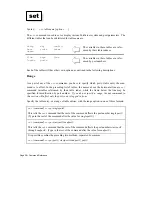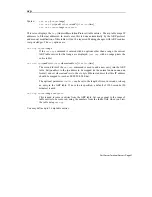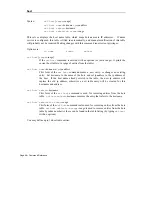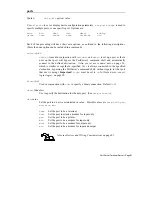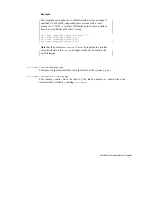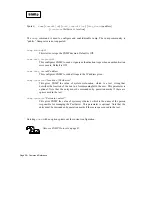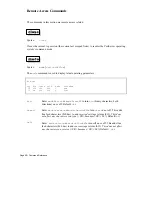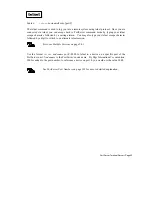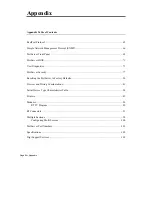
Page 52
Ÿ
Command Reference
dport=
remote_port#
Use to specify the port number an auto connect port should connect to. (See set ports
auto on page 51).
•
If set to 23, specifies telnet protocol services.
•
If set to 513, specifies Rlogin services.
•
If set to 0 (the default value), then checks the value of
uid
(below); if uid is
set to 0, then specifies telnet services. If uid has a valid user index #, then
specifies rlogin services.
Check your operating system documentation for service numbers.
edelay=
value
Use to specify a delay time between packets transmitted under continuous data recep-
tion. Values from 1 to 100 are valid, where 1 stands for 10 milliseconds delay. (A
value of 2 would be 20 milliseconds, a value of 3 would be 30 milliseconds, a value
of 100 would be 1000 milliseconds or one second). Do not change unless you are
experienced with packet timing processes. Default=
1
(10 ms)
group=
group#
Assign a group number of like devices (output modems, for example) specified by
the range= value, so that a user can ask for by group number if he or she does not
care which particular port they get, but are satisfied with the first open one. Pick a
group number in the range 17-80 to avoid confusion or conflicts with the “regular”
port names. (See PortServer Port Numbers on page 101.)
sess=
number_of_sessions
Use to set the maximum number of sessions any port can run; valid entries are from
1 to 9. Default=
4
. (There is a limit of 64 total sessions for all ports on the
PortServer.)
range=
startport#
-
endport#
Specify a range of ports to be modified.
save=on
|
off
Save the changes to EEPROM.
termtype=
terminaltype
Use to assign a terminal type to the port. The terminal type is used for the multi-
screen/multisession feature (see page 98), and is reported to the remote host during
telnet negotiations.
uid=
user_index#
Use to set the user index number (the number of the user as carried in the
PortServer's table). View the table by typing
set
users
. (See set ports auto on
page 51.)

